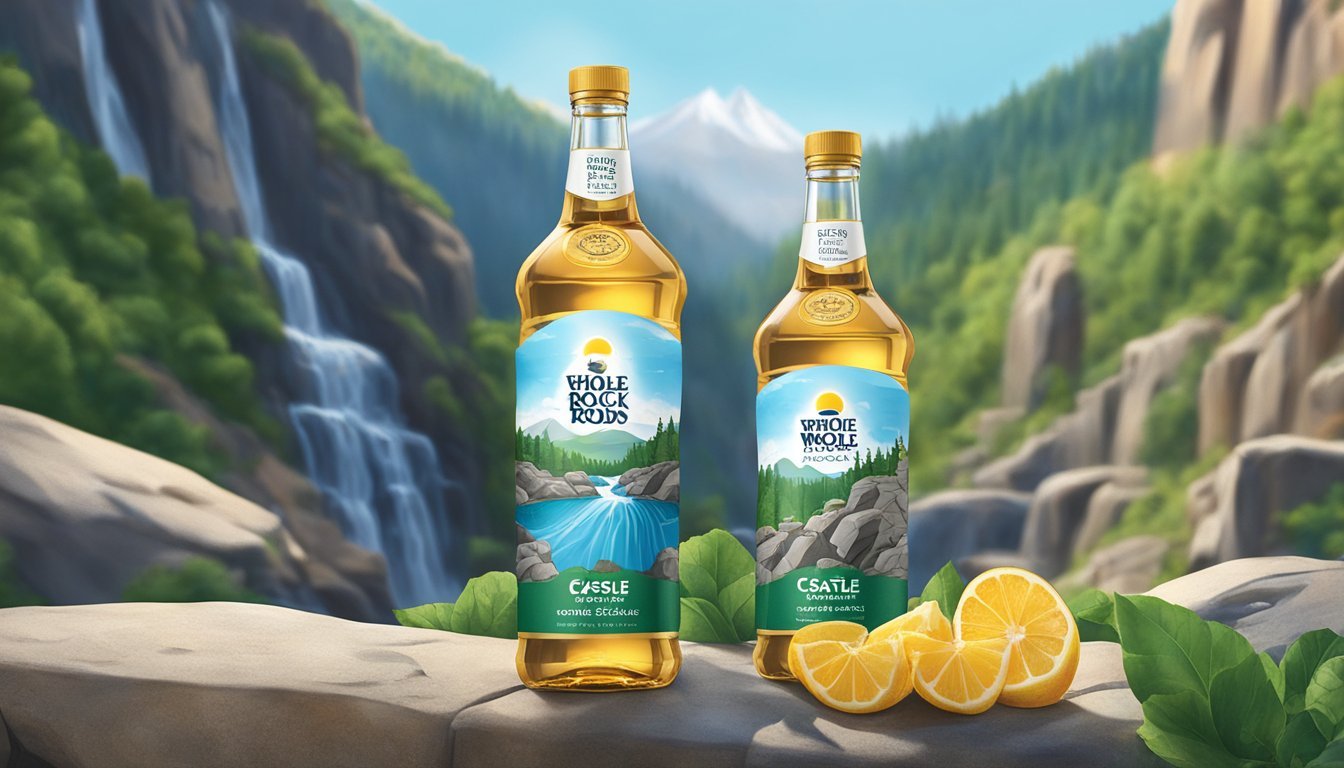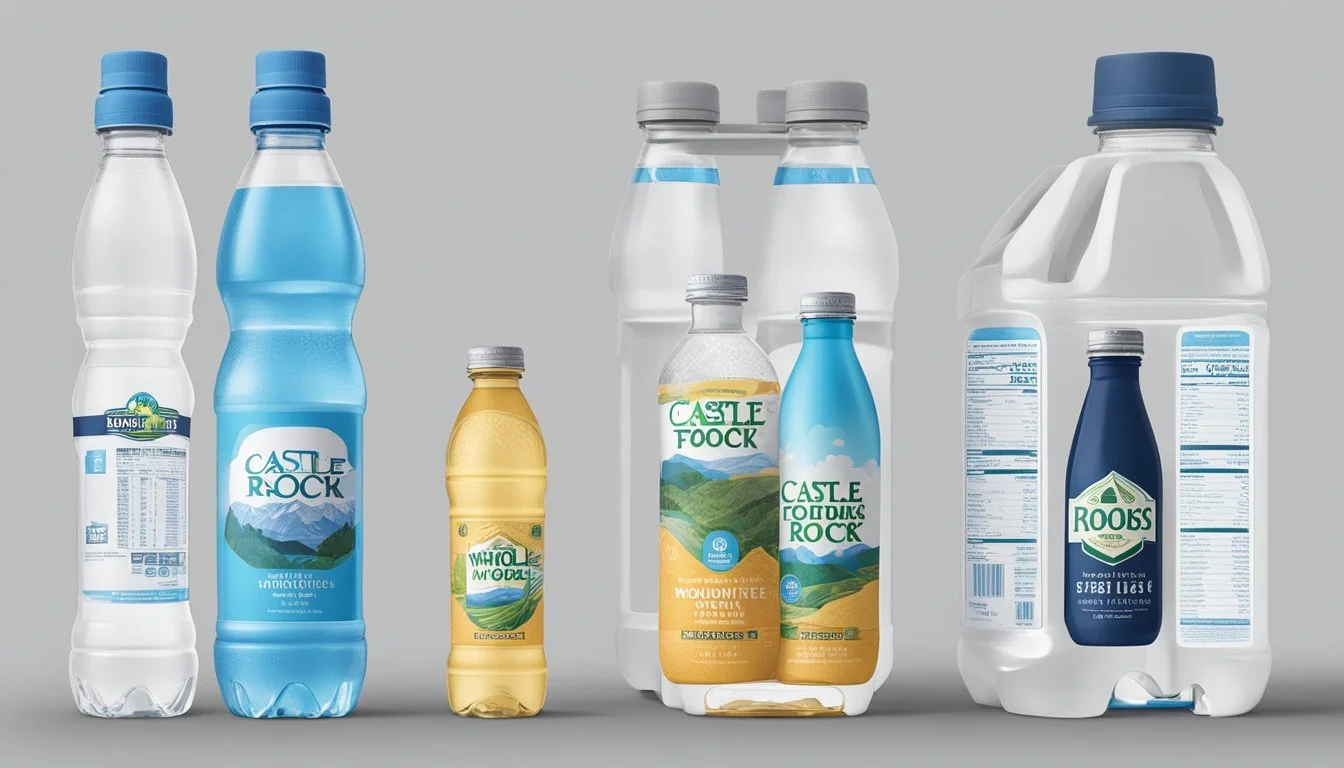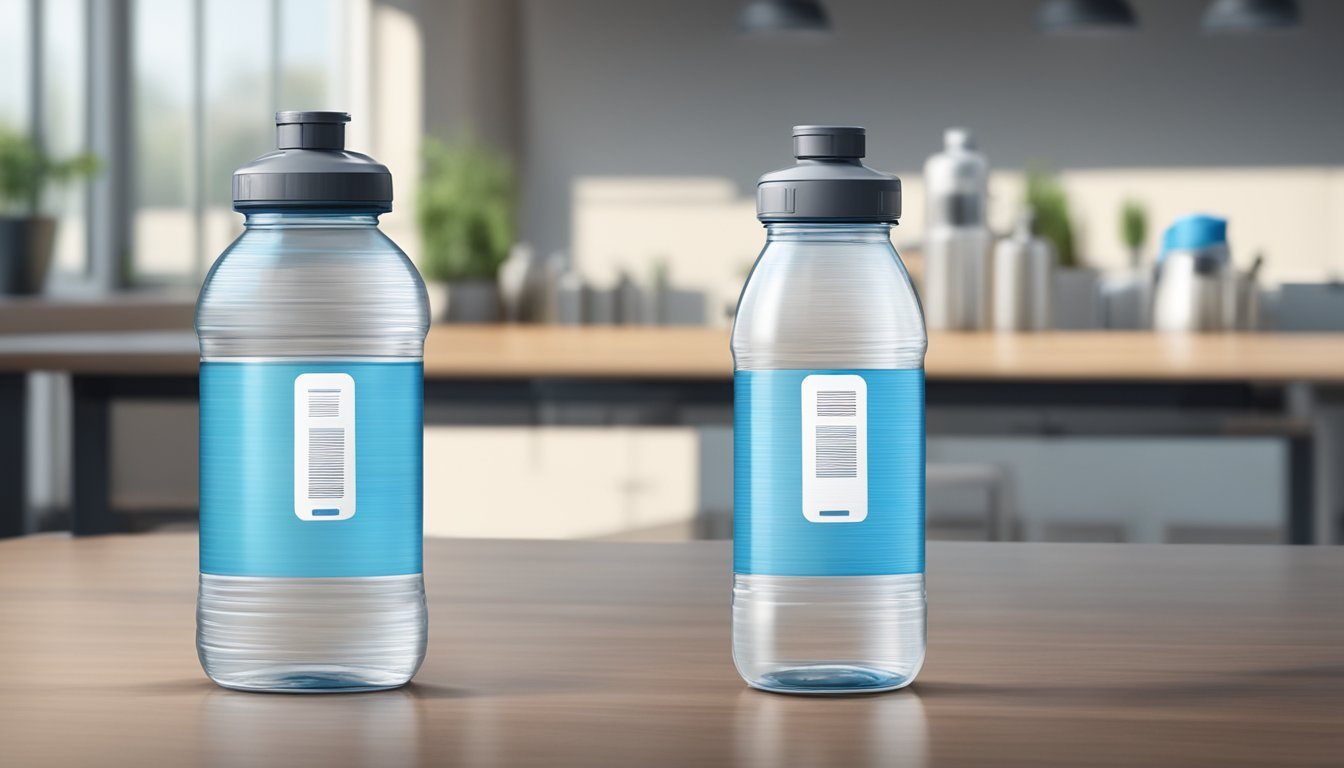Castle Rock vs. Whole Foods 365
Which Bottled Water Reigns Supreme?
When it comes to bottled water, two popular choices often come up in discussions: Castle Rock and Whole Foods 365. While both brands have their merits, Castle Rock offers a crisp, clean taste sourced from natural springs in the pristine wilderness of Mount Shasta, California. This makes it a favorite among those who prefer their water with a hint of nature's purity.
On the other hand, Whole Foods 365, though technically a spring water, has received mixed reviews for its flavor profile. It is often described as having a sour taste with a dry aftertaste. This makes it less appealing to some but an economical choice at 69 cents per bottle, offering accessibility and affordability for daily hydration needs.
For those considering which bottled water to choose, the decision largely comes down to personal preference and priorities. Castle Rock is ideal for enthusiasts seeking purity and natural taste, while Whole Foods 365 presents a budget-friendly option with an acceptable, albeit less remarkable, flavor.
Brand Profiles
Castle Rock and Whole Foods 365 are both popular bottled water brands, each with its unique characteristics and product offerings.
Castle Rock: A Brief Overview
Castle Rock focuses on providing high-quality, natural spring water. Located in the Mount Shasta area of California, the water is said to be sourced from a natural spring, which contributes to its purity and mineral composition. Castle Rock is known for its commitment to environmental sustainability, often using 100% recycled plastic for its bottles. Their water is also marketed as being free from contaminants and offering a refreshing taste, appealing to consumers who prioritize both taste and environmental impact.
Whole Foods 365: Brand History and Products
The 365 Everyday Value brand by Whole Foods includes various water products such as spring water, alkaline water, and electrolyte-enhanced water. Priced competitively, these products are accessible to a broad audience. Established as an in-house brand by Whole Foods Market, 365 aims to meet the high standards set by the retailer. The spring water is noted for its simplicity and cost-effectiveness, while the alkaline and electrolyte variants cater to health-conscious consumers looking for additional benefits. The brand leverages Whole Foods’ reputation for quality and integrity, making it a reliable choice for everyday hydration needs.
Water Sources and Quality
Castle Rock and Whole Foods 365 both offer bottled water options that come from different sources and undergo various processing and safety standards.
The Source of Castle Rock Water
Castle Rock water is sourced from natural springs located in the pristine areas of the Mount Shasta region in California. This area is known for its natural filtration through layers of volcanic rock, which contributes to the water’s purity and mineral content. The spring water undergoes minimal processing to retain its natural properties. This sourcing method provides Castle Rock water with a unique taste and a high level of natural minerals.
Sourcing of Whole Foods 365 Water
Whole Foods 365 water, labeled as spring water, is sourced from multiple springs. According to Consumer Reports, the water is bottled by Spring Hill in various locations. The source information is usually listed on the bottle label, which can help consumers locate quality reports. Despite being marketed as spring water, some reviews have noted a taste that resembles more average purified waters. This indicates that the water may undergo additional processing like reverse osmosis to meet safety standards.
Quality Reports and Safety Standards
Both Castle Rock and Whole Foods 365 must comply with stringent Food and Drug Administration (FDA) regulations to ensure safety. Consumer Reports tested numerous bottled waters, including these brands, for contaminants such as PFAS. While Whole Foods 365 water meets all FDA requirements, it was noted to contain PFAS chemicals. Castle Rock emphasizes their commitment to quality and minimal processing, which can help preserve the natural purity of their spring water. Consumers are encouraged to review the quality reports available in PDF format on the respective brands' websites to make informed choices.
Health and Hydration
Both Castle Rock and Whole Foods 365 have unique characteristics that affect health and hydration. Factors like pH levels and essential electrolytes play a crucial role in determining which bottled water might be better suited for your needs.
pH Levels and Health Implications
The pH level of water is significant for overall health. Castle Rock Natural Spring Water typically has a neutral pH around 7.0 to 7.8. This range helps maintain the body's natural balance.
Whole Foods 365, also a spring water, has a similar pH range but occasionally leans slightly acidic, which some consumers find less appealing.
Water with balanced pH levels is less likely to contribute to acidity in the body, promoting better health. Highly acidic or alkaline water can disrupt the body's natural pH balance, impacting overall wellness.
Essential Electrolytes and Hydration Benefits
Electrolytes such as sodium, potassium, and magnesium are vital for hydration. Castle Rock water contains naturally occurring electrolytes, which can support hydration more effectively.
Whole Foods 365 also contains electrolytes but at lower levels.
The presence of these minerals helps the body better retain water, enhancing hydration. For those engaged in rigorous activities, the higher electrolyte content in Castle Rock water might provide a more significant hydration benefit.
In summary, while both brands offer safe drinking water, Castle Rock's richer electrolyte content and balanced pH may better support overall health and hydration than Whole Foods 365.
Taste and Texture
In comparing Castle Rock and Whole Foods 365 bottled water, the taste and texture are crucial aspects to consider. Both brands have unique offerings that appeal to different preferences, making each a standout in particular areas.
Flavor Profiles of Castle Rock and Whole Foods 365
Castle Rock water is known for its clean and crisp taste, drawing from pristine sources in the Mount Shasta region. It possesses a natural, slightly sweet profile with no added minerals or chemicals. This purity makes it appealing to those seeking a straightforward, refreshing taste.
Whole Foods 365 offers a range of waters, with their spring water often described as having a milder flavor. Some find it to have a slight mineral aftertaste, which adds complexity without being overpowering. Their alkaline and electrolyte waters, however, provide a more distinct taste due to added minerals, giving a slightly salty undertone.
The Texture Experience: Still vs. Sparkling
Castle Rock primarily offers still water, which contributes to its smooth texture. The lack of carbonation ensures a silky mouthfeel that is easy to drink and suitable for daily hydration. It doesn’t have the bite of sparkling water, making it gentle on the palate.
Whole Foods 365's line includes both still and sparkling options, catering to various preferences. The still water has a clean, consistent texture, while their sparkling water provides a different experience. The carbonation in their sparkling waters offers a lively, effervescent texture that can be invigorating. The bubbles are fine and well-balanced, avoiding the harshness some sparkling waters might have.
By focusing on these specific qualities, Castle Rock and Whole Foods 365 both offer unique drinking experiences, catering to different tastes and textural preferences.
Environmental and Health Concerns
Castle Rock and Whole Foods 365 bottled waters have raised important questions about their impact on health and the environment. Concerns primarily revolve around the presence of PFAS chemicals and the sustainability of their packaging practices.
Bottled Water and PFAS Chemicals
Consumer Reports has highlighted the presence of PFAS chemicals, also known as "forever chemicals," in bottled water. These chemicals have been detected in several bottled water brands, potentially impacting health.
EPA advises a limit of 70 parts per trillion (ppt) for PFAS substances such as PFOA and PFOS. Long-term exposure to these chemicals is associated with cancer, liver damage, and developmental issues. States like Massachusetts have issued health warnings, underscoring the importance of monitoring PFAS levels in bottled water.
Whole Foods 365 and Castle Rock must ensure their products adhere to voluntary guidance on PFAS limits to protect consumers. Regular testing and transparent reporting of PFAS levels would help build consumer trust and safeguard public health.
Packaging and Sustainability Practices
The environmental impact of bottled water extends beyond chemical content. Packaging practices also play a crucial role in sustainability. Single-use plastic bottles contribute significantly to plastic waste, which adversely affects the environment.
Castle Rock and Whole Foods 365 both use plastic packaging, but their sustainability practices vary. Brands that adopt recyclable and biodegradable materials can reduce environmental footprint. Retailers are increasingly moving towards eco-friendly packaging to meet consumer demand for sustainable options.
Consumers are encouraged to check the recycling codes and sustainability claims on bottled water packaging. Brands that prioritize sustainable practices not only contribute to environmental health but also appeal to environmentally conscious customers.
Companies and Business Practices
Castle Rock and Whole Foods 365 represent two prominent players in the bottled water industry, each with distinct approaches to corporate transparency and consumer engagement. Their business practices range from quality control to public accountability.
Corporate Transparency and Consumer Trust
Castle Rock is known for its commitment to environmental sustainability. They emphasize their source, which is a pristine spring, openly sharing information about their extraction and bottling processes. This transparency builds trust among consumers, bolstering the brand’s reputation.
Whole Foods 365, on the other hand, operates under the larger umbrella of Whole Foods Market. Although less detailed in their public disclosures, they benefit from Whole Foods’ overall market reputation for quality. Nevertheless, precise details such as water source and testing data are less readily available, which can impact consumer trust.
The Role of Consumer Reports and Investigative Journalism
Consumer Reports has become a critical entity in holding water brands accountable. Investigative journalists like Ryan Felton have played a significant role in uncovering discrepancies and potential corporate malfeasance.
For instance, Consumer Reports magazine tested various water brands, including Whole Foods 365, for contaminants like PFAS. Findings of such reports influence public perception and can lead to enhanced scrutiny and regulatory changes, compelling companies to maintain high standards.
In summary, thorough and unflinching assessments by organizations and reporters help ensure that companies uphold transparency and prioritize consumer safety.
Price and Value
When comparing the price and value of Castle Rock and Whole Foods 365 bottled waters, consumers will notice differences in cost, perceived quality, and overall value. Each brand offers various types of water, and prices can vary depending on the store.
Comparative Cost Analysis
Castle Rock Water typically retails at a higher price point compared to Whole Foods 365. For instance, a 1-liter bottle of Castle Rock Artesian Water can cost around $2.00-$3.50 depending on the retailer. This is significantly higher than the Whole Foods 365 Spring Water, which is often priced at $0.69 - $1.29 per 1-liter bottle.
Whole Foods 365 offers multiple options, including Alkaline Water at $1.29 for 1 liter and Electrolyte Water at $0.79 for 500 mL. The difference in price relates to the purification process and added minerals. Castle Rock markets itself on purity and artesian sourcing, which justifies its premium pricing.
The Bottom Line for Consumers
Costco and other big-box retailers often provide bulk purchasing options, impacting overall costs for consumers. Castle Rock's higher price may be seen as a reflection of its natural sourcing and artisanal branding, offering perceived quality and exclusivity.
Whole Foods 365 excels in value for everyday use. It balances cost and quality, making it a convenient choice for budget-conscious shoppers without compromising on essential features.
For consumers making a choice based on financial considerations, Whole Foods 365 is a versatile and economical choice. For those prioritizing top-tier artisan quality and sustainability, Castle Rock is the ideal option.
Consumer Tips and Takeaways
Selecting between Castle Rock and Whole Foods 365 bottled water involves evaluating several factors. These include the water's quality, convenience, and ensuring safe drinking water.
Choosing the Right Water for You
Quality: Castle Rock is sourced from natural springs and emphasizes minimal processing, which might make it preferable for those seeking natural mineral content. Whole Foods 365, although categorized as spring water, has been noted to have a more processed taste. Consumers looking for a more organic taste experience may lean towards Castle Rock.
Convenience: Whole Foods 365 can usually be found at Whole Foods Market locations, making it a readily accessible option for many shoppers. Conversely, Castle Rock may not be as widely available, presenting a potential inconvenience for those not within its distribution areas.
Safe Drinking Water: Both brands aim to provide safe drinking water. Castle Rock touts its natural spring origins, which could appeal to consumers wary of chemicals and contaminants. Whole Foods 365's affordability and availability also make it a practical choice for maintaining daily hydration.
Selecting the appropriate water should be based on individual preferences and lifestyle needs. Always review labels and consider water sources and processing methods for making an informed choice.









